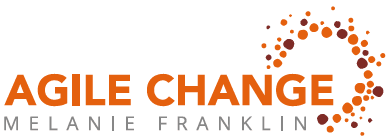Through 2023, there has been so much information to digest when it comes to AI. New tools have been launched throughout the year, and existing tools have seen a massive increase in users.
Note – within this blog, I’ll be discussing AI tools to optimise workflow and focusing on Microsoft. However, this is not a blog to specifically advertise Microsoft. There are plenty of organisations that use G-suite, but I am using Microsoft as an example of what I think is coming next.
Through 2023, there has been so much information to digest when it comes to AI. New tools have been launched throughout the year, and existing tools have seen a massive increase in users.
Through 2024, it’s interesting to think about where AI will take us next. There will be so many aspects that AI can help with; one of the most useful ones for me will be using AI tools to optimise workflow.
Using AI Tools to Optimise Workflow
When discussing AI tools to optimise workflow, it’s interesting to think about how far we have come recently.
Do you remember before the pandemic, one of the most common changes (as part of digital transformation) was the roll-out of Office 365? During the pandemic, the focus changed to encouraging the use of Microsoft Teams. Now, I am seeing digital consultancies gearing up to take their clients through a roll-out of Co-pilot.
This is an AI tool that claims to optimise our workflow, making things faster and more repeatable. For example, this tool will generate text and tables in Word, draft emails in
Outlook, and summarise content, for example, giving us the highlights of a long email or Word document.
These initial services highlight the wider change that will be taking place this year, which is how we move from being originators of our content to approvers of suggestions made by AI.
When is it appropriate to use AI tools?
As with anything that claims to automate our regular tasks, we need to make decisions about when this is helpful and when this is just repeating our work.
As I start using more AI tools, I am coming to the opinion that AI is helpful when I am lost.
However, they become a time-stealing distraction when I know exactly what I am doing, how to do it and the format for my outputs.
This means I need to be more intentional when I am planning my work. I need to establish what a good quality outcome will look like and decide if I am able to create this using my skills or if it would be better to use AI to make a first attempt.
That emphasis on the first attempt is important because using AI tools to optimise workflow does not completely remove me from the work; it changes my role from creator to tester. This creates a virtuous circle with AI because, as a tester, I need to apply the quality criteria that I defined when I chose to use AI tools in the first place.
Final thoughts on AI tools and workflow
So, let me pose this question – are we training/hiring staff to apply these AI-generated decisions to their work? Or, is our workforce a group of expert doers who do not want to give up control over their work? They don’t want to use AI tools to optimise their workflow. Is AI lost on them?
What are your thoughts?
